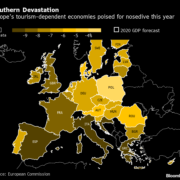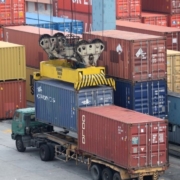72%
Government takes majority shares in TAP and Efacec in midst of pandemic

The minority government of António Costa saved this month two strategic companies, securing thousands of jobs. It bailed out flagship airline TAP and nationalised Efacec, the technological company – with over 2500 highly qualified employees and activities in more than 60 countries – brought down by its association with the former first daughter of Angola and richest women in Africa, Isabel dos Santos.
Efacec Power Solutions is not nearly as important as TAP. The idea is only for a temporary nationalisation until the end of the year in order to guarantee that salaries and bank loans can be paid, and the confidence of clients and suppliers restored. A dozen potential buyers from Portugal, Spain, the US and China are on the horizon and it’s only a matter of time before the company is reprivatized.

Buying up Isabel dos Santos’ majority (72%) share in Efacec is moreover a decent way to get rid of her involvement – which has done the company no good since her name was reviled across the media around the world for pillaging her homeland of hundreds of millions, and her assets frozen in Portugal and Angola.
Despite the nightmare of what to do with TAP – crippling losses in recent years exacerbated by a further 395 million loss in the first two months of this year – on the long run, the government has taken a clear stand. ‘TAP is fundamental for our territorial continuity, for our connection to the world and our economic development’, declared PM António Costa. The airline – with a workforce of 10.000 and contributing 2.6 billion to the export in 2019 – is just too important for the nation to let it fall.

By spending 55 million to buy out the American private shareholder David Neeleman, and committing to an injection of 1,2 billion – approved by Brussels – into the company, the state now effectively controls TAP with 72% of the capital and took the ‘worst-case scenario of nationalisation’ off the table.

As the company is in technical bankruptcy with a debt of over 775 million euros, the approval of Brussels will, by all means, imply a substantial restructuring, including a reduction in the number of routes and planes and consequences on employment.
Since the beginning of the pandemic crisis, more than 1000 fixed-term workers have been dismissed due to non-renewal of contracts but undoubtedly more layoffs will follow in the next months.
Stay healthy Fique saudável (pic Público/Sapo)









